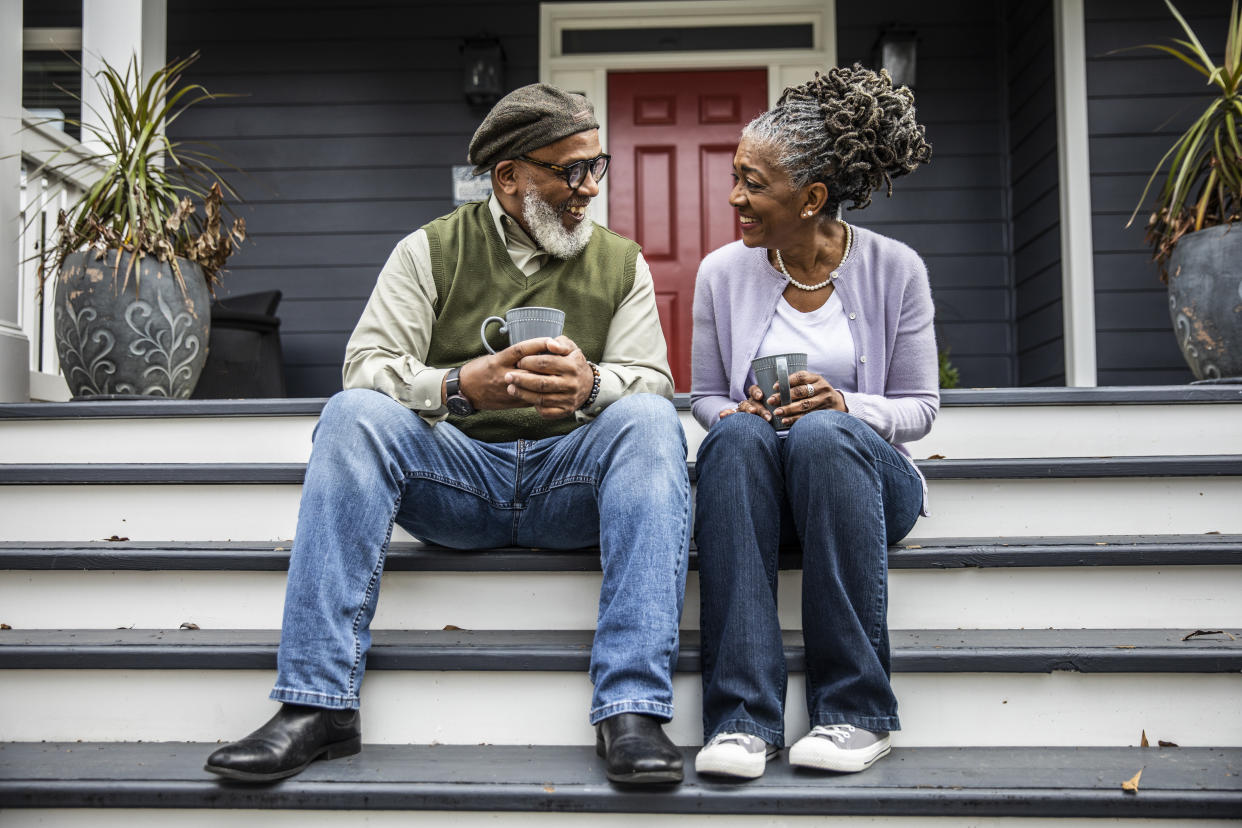Loneliness can hit older adults hard. This aging expert says there are simple ways to stay socially connected.

A growing number of older adults in the United States are experiencing loneliness due to a lack of connection with others, which poses a significant threat to their health. This is especially true for people who have lost their partners and no longer engage in social activities. As the senior director of the National Council on Aging's Center for Healthy Aging, it's Kathleen Cameron's job to help advocate for and empower older adults when it comes to a range of issues — including loneliness.
Cameron tells Yahoo Life that a number of factors contribute to social isolation later in life. "Family structures are geographically distant today, more so than in the past," she says. "Adult children move from their hometowns to where their new career opportunities take them — which may be far from their parents. Death of a senior's spouse, siblings or friends also adds to the loneliness, as well as retirement, which is really tough on some retirees. Their co-workers may have been their only circle of friends for socialization, but now they've lost that. Suddenly, they have a lot of free time and don't know what to do. They've lost their sense of meaning and purpose in life."
Finances can also come into play, she says. "Many seniors are on a fixed budget after retirement and may not be able to participate in the things they once enjoyed, like going out with friends to dinner or a movie," Cameron notes.
She adds that loneliness can "trigger serious health issues." Indeed, research has found that chronic loneliness is associated with a variety of negative health outcomes, including high blood pressure, heart disease, stroke, obesity, depression, cognitive decline, Alzheimer's and even premature death.
The data on older adults and loneliness paints a grim picture, but Cameron says there is still plenty that can be done to stay socially connected as you age. Here's how.
Consider friendships outside your norm
Your friendships may look different as you age. Don't dismiss less obvious opportunities for meaningful friendships — including, Cameron suggests, with people outside your age group. Maintaining intergenerational friendships can offset loneliness and help both parties have a more positive attitude about aging.
Stay present and grateful
Cameron also firmly believes in practicing gratitude — as early in life as possible — to improve one's overall health and positivity in the future. "Every day you should think of something you are grateful for while being mindful of others during your interactions with them," she says. "I would even tell seniors to put your phone away during conversations and stay focused on the moment."
Volunteer
Volunteering — making Meals on Wheels deliveries, handing out water bottles at a 10 km race, donating your time to phone bank for your preferred candidate — is consistently associated with fostering community and improving our own quality of life. Says Cameron: "Volunteer opportunities are also a great way to stay socially connected. It's gratifying to help others and is beneficial to both our physical and mental health."
Check your hearing
Health issues like hearing loss can "cause seniors to restrict their activities," Cameron notes. Research has found that hearing loss can also contribute to isolation if left untreated, due to struggles communicating with others and keeping up with conversations. While she acknowledges that many older adults don't like asking for help, Cameron advises that anyone who is struggling with their hearing talk to their doctor about getting hearing aids.
Consider spending time at a senior activity center
Cameron stresses the importance of older adults having access to the activities these centers offer, such as educational programs, exercise classes, shared meals, card games, movie days, gardening and book clubs. "It's the best way to tackle loneliness — addressing their emotional needs, mental well-being, social connectivity and overall quality of life," she says. Churches and other community centers may offer similar benefits.
Pursue a hobby
From knitting to karate, hobbies offer several health benefits, including helping to keep the mind sharp. Cameron adds that finding a hobby you can share with others — say, by taking a pottery class, hitting up a convention for classic car enthusiasts, using your baking skills to help fundraise for the local school, etc. — can also lead to important social connections. "Engage in activities you enjoy and make friends with people with similar interests," she says.


